Introduction
- Heart diseases are fatal and they cause significant number of deaths in the population;
- The nature of dietary fats determine predisposition to heart diseases;
- Lecithin is a dietary phospholipid that is associated cardiovascular diseases;
- Trimethylamine oxide is a metabolite of lecithin that causes heart diseases.
Heart diseases contribute significantly to the increasing mortality rates across the world. According to Szuchaj and Nieuwenhyse (2003), heart diseases accounts for “approximately 42% of all deaths in the United States” per year (p. 117). Nutrition is an important determinant of the nature of heart diseases in a given population. The types of fats that one consumes in diet determine predisposition to heart diseases. Taking a low content of saturated fats and cholesterol lowers the risks of heart diseases such as atherosclerosis, hypertension, heart attack, heart failure, and stroke. Owing to changing eating lifestyles, people have increased their fat intake while reducing their physical activity, which consequently lead to the development of heart diseases. Lecithin (phosphatidylcholine) is a dietary phospholipid that research has shown to associate with the occurrence of cardiovascular diseases in the population (Wang et al., 2011). The metabolism of the phosphatidylcholine by gut flora results in production of choline, betaine, and trimethylamine oxide, which predisposes an individual to cardiovascular diseases.
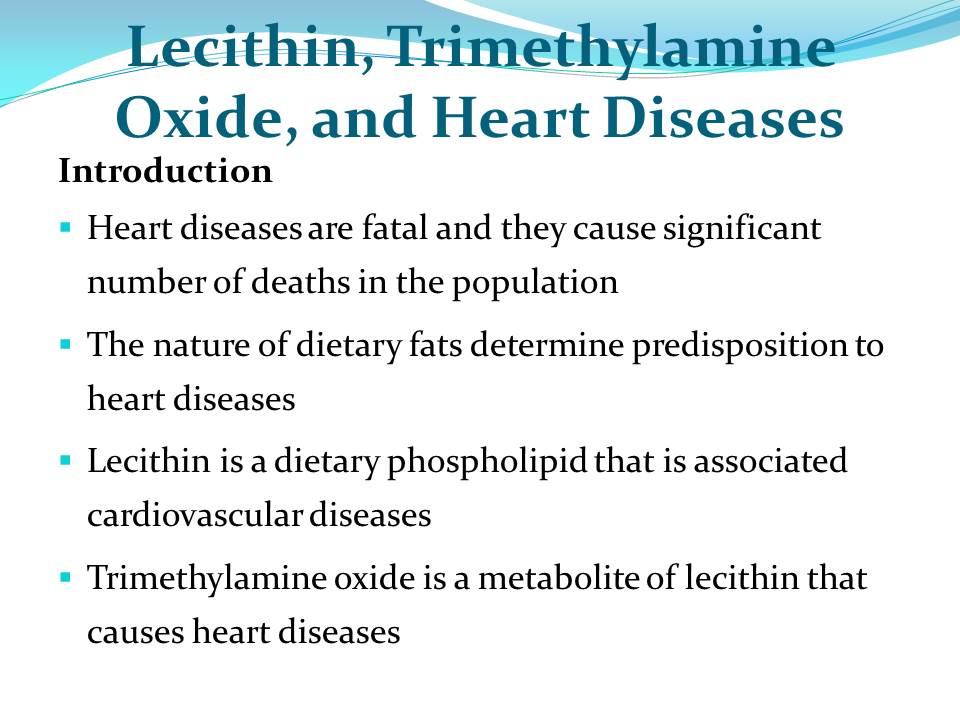
Lecithin
- It is a complex phospholipid that has phosphoric acid, fatty acids, choline, glycerol, and glycolipids;
- It is a structural component of cell membranes in both animal and plants;
- It mediates transport and metabolism of lipids in the body;
- It is used for medication purposes;
- It is a powerful emulsifying factor that enhances metabolism of cholesterol in the body.
Lecithin is a complex phospholipid that has phosphoric acid, fatty acids, choline, glycerol, and glycolipids amongst other components that are common in phospholipids. It is a structural component of cell membranes in both animal and plant cells. Given that cholesterol is a phospholipid, it aids in the formation of lipoproteins that transport cholesterol in the body. Administration of lecithin has enabled patients with cardiovascular diseases to reduce low density lipoprotein and increase high density cholesterol, thus reducing the occurrence of heart attacks (Szuchaj & Nieuwenhyse, 2003). The components of lecithin make it to be a powerful emulsifying factor that enhances metabolism of cholesterol in the body. Biochemically, lecithin is a very important compound because it mediates transport and metabolism of lipids in the body.
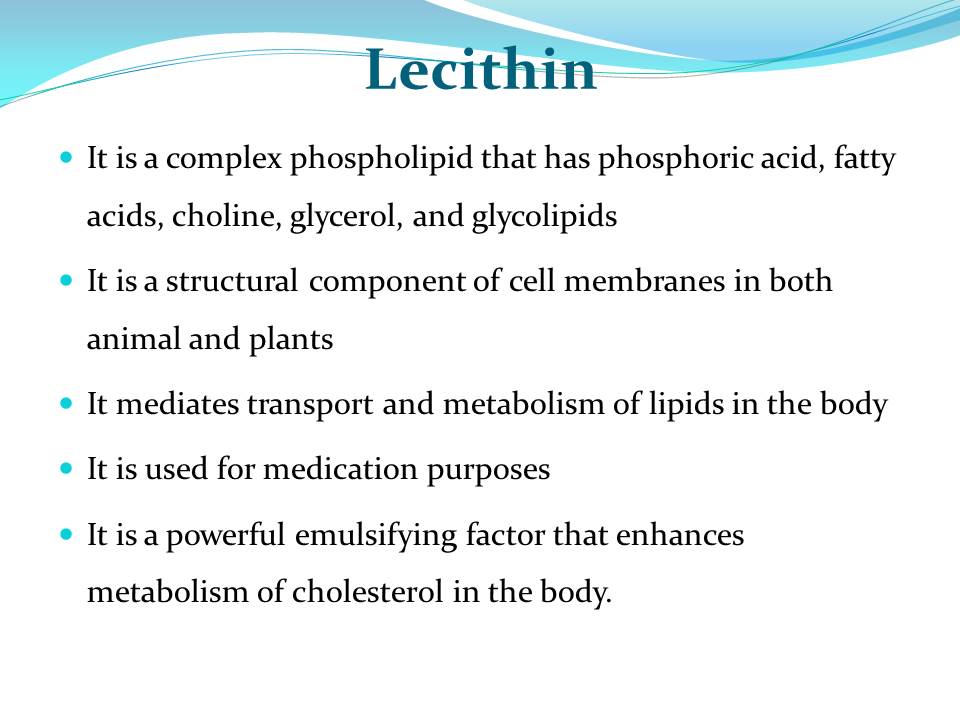
Conversion of Lecithin to Trimethylamine Oxide
- Dietary lecithin is present in eggs and meat;
- Intestinal enzymes act on lecithin and produce choline and phospholipid moieties;
- Gut flora metabolize choline in the large intestines into trimethylamine;
- In the liver, flavin-containing monooxygenase converts trimethylamine into trimethylamine oxide.
Dietary lecithin is the one that is responsible for the production of trimethylamine oxide. When a person feeds on a diet that contains lecithin, digestion in the stomach results into production of choline and phospholipid moieties of the lecithin. The amount of lecithin in the diet is proportional to the amount of choline that the intestines absorb following digestion. Tang et al. (2013) state that intestinal flora convert choline, a product of the lecithin digestion, into trimethylamine, which is further converted to trimethylamine oxide by flavin-containing monooxygenase in the liver.
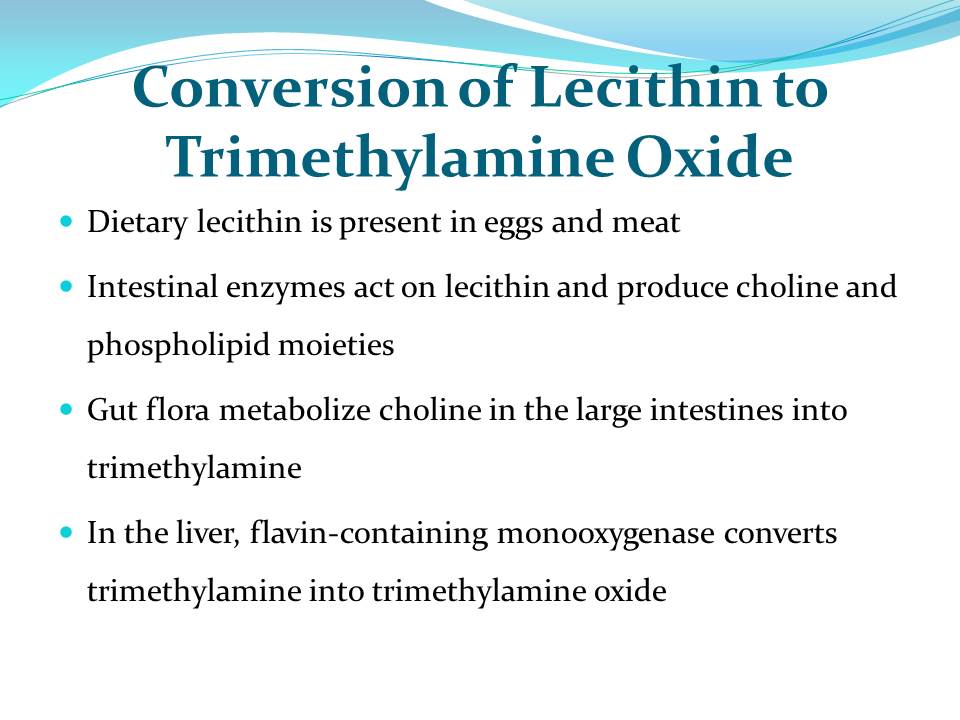
Gut Flora
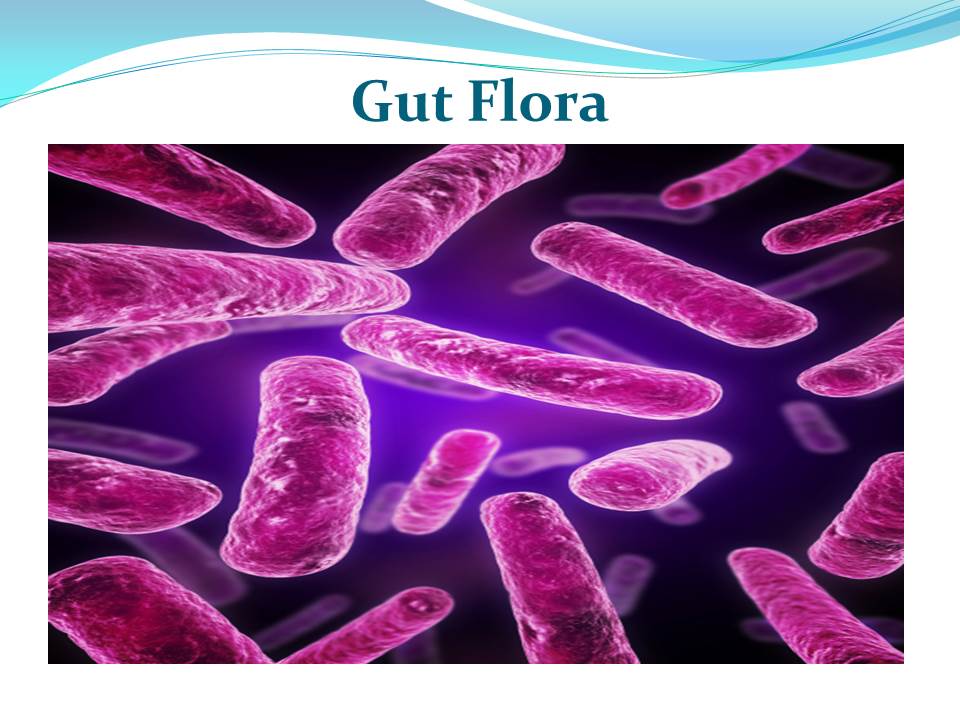
Metabolism Process
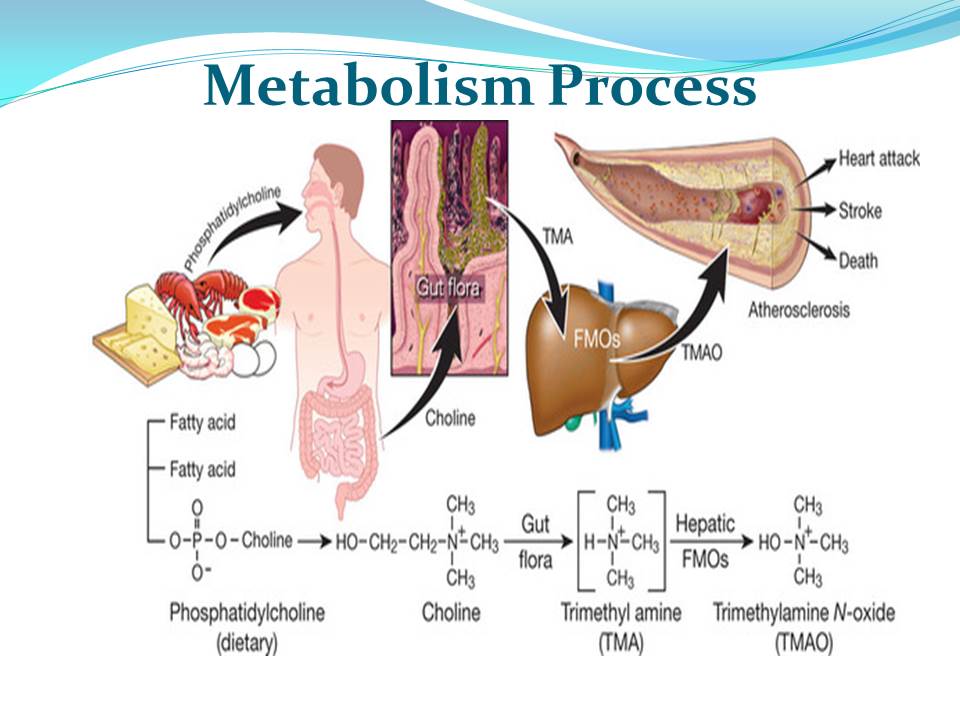
Trimethylamine Oxide and Heart Diseases
Atherosclerosis
- Commonly caused by the accumulation of cholesterol and triglycerides in the blood vessels;
- The occurrence of atherosclerosis correlates with the levels of trimethylamine oxide in the body;
- Expression of the hepatic flavin-monooxygenase also correlate with atherosclerosis;
- Betaine causes atherosclerosis by regulating gene expression via methylation mechanism.
Atherosclerosis is a common heart disease caused by the accumulation of cholesterol and triglycerides in the blood vessels, thus reducing free flow of blood in the body. A study conducted using mice indicates that the occurrence of atherosclerosis correlates with the levels of trimethylamine oxide in the body (Loscalzo, 2011). Such correlation means that trimethylamine oxide has causal relationships with atherosclerosis. The expression of the hepatic flavin monooxygenase has been thought to increase the risk of atherosclerosis. According to Loscalzo (2011), “hepatic flavin monooxygenase transcript levels were shown to correlate with the extent of atheroma in mice,” (p. 128). The correlation of the monooxygenase and atheroma provides some evidence of the impact of the enzyme expression on the occurrence of atherosclerosis among humans. Loscalzo (2011) explains that betaine take part in the methylation cycle as it serves as an alternative methyl source for methylating homocysteine to methionine via built-in: homocysteine methyltransferase” (p. 128). Through methylation reactions, betaine influences gene regulation.
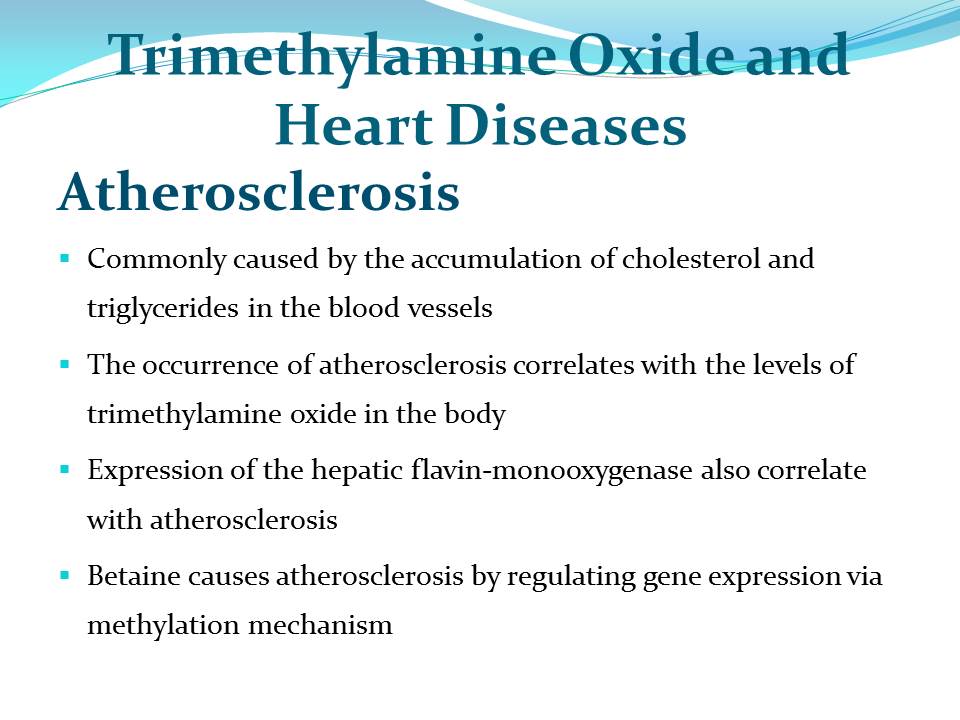
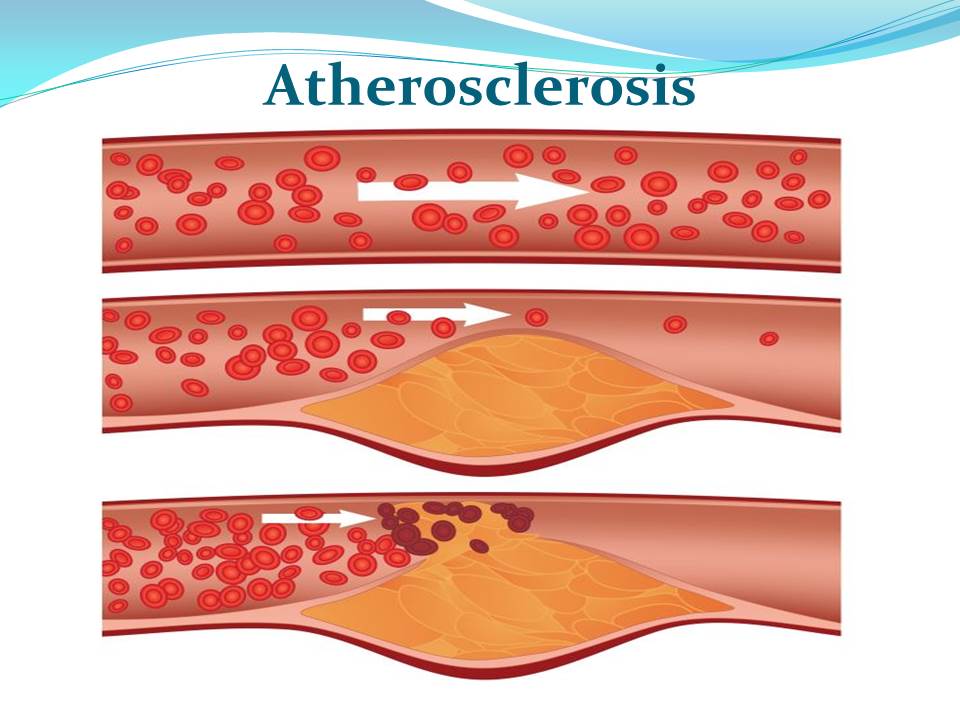
Heart Attack and Stroke
- Caused by blockage of blood vessels that supply blood to the heart;
- The level of trimethylamine oxide in the blood is proportional to the risk of heart attack;
- Consumption of eggs increases the levels of trimethylamine oxide in blood;
- Stroke correlates with the levels of trimethylamine oxide in the blood.
The heart attack is a heart disease that occurs due to blockage of blood vessels that supply blood to the heart. Coronary artery and vein are the major blood vessels where the blockage occurs, thus affecting the supply of blood and oxygen to the heart. A study done to examine the causes of heart attack among patients with cardiovascular disorders shows that the level of trimethylamine oxide in the blood is proportional to the risk of heart attack (Wang et al., 2011). Hence, trimethylamine oxide is a risk factor of heart attack in the population. In a prospective study of three years, the study revealed that consumption of eggs increased trimethylamine oxide levels in blood and increased the progression of heart attack among 4007 participants who suffered from various cardiovascular diseases (Tang et al., 2013). Hence, the findings support the assertion that trimethylamine oxide causes heart attack. Additionally, a body of evidence shows that there is a significant correlation between trimethylamine levels in the blood and the occurrence of the stroke in the population (Loscalzo, 2011). In this view, trimethylamine oxide is a risk factor that contributes to the occurrence of stroke in the population.
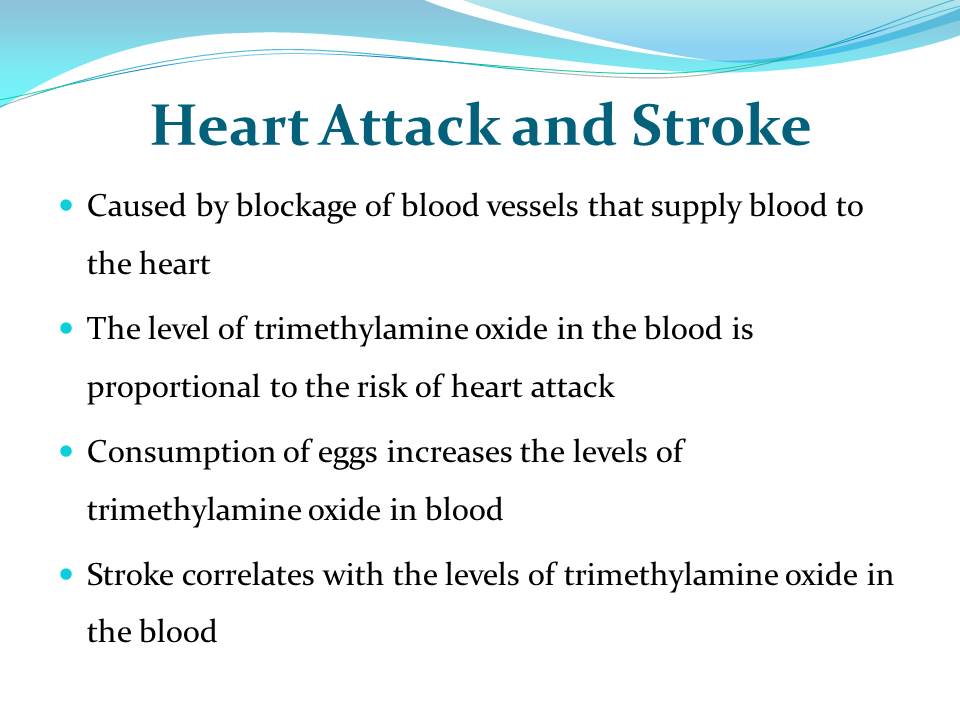
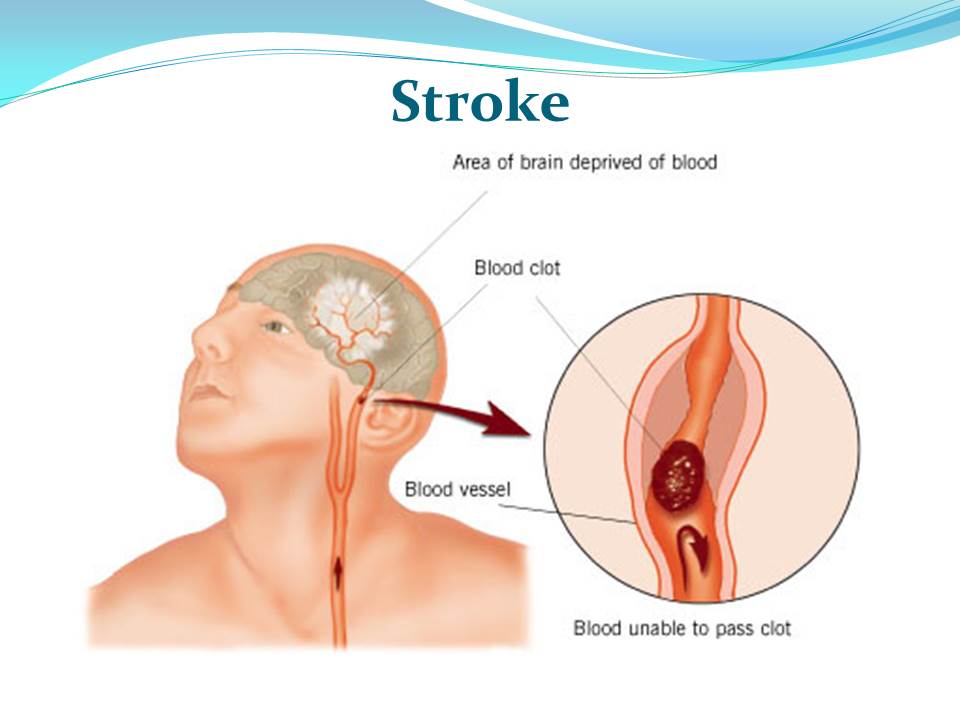
Cardiovascular Diseases
- Trimethylamine oxide increases the risk coronary artery disease;
- Trimethylamine correlates with the progression of coronary artery disease;
- Administration of antibiotics significantly reduces the level of trimethylamine oxide;
- Trimethylamine oxide increases expression of scavenger receptors associated with atherosclerosis.
Ample evidence indicates that trimethylamine oxide increases the risk of cardiovascular diseases such as coronary artery disease among individuals. A prospective study performed to determine the impact of choline metabolism on the progression of the coronary artery disease indicated that the patients with high levels of trimethylamine oxide had increased progression of coronary artery disease than those who have low levels of trimethylamine oxide (Tanga et al., 2013). In the study, when participants consumed boiled eggs, before and after taking antibiotics to kill gut flora, there was significant differences in the levels in the levels of trimethylamine oxide in the body. According to Tanga et al. (2013), “plasma levels of the trimethylamine oxide were markedly suppressed after the administration of antibiotics and the reappeared after withdrawal of antibiotics” (p. 1575). The marked difference in trimethylamine oxide shows that the metabolism of lecithin is a significant risk factor of coronary artery disease. Wang et al. (2011) further asserts that, “dietary supplementation of mice with choline, trimethylamine oxide or betaine promoted upregulation of multiple macrophage scavenger receptors linked to atherosclerosis, and supplementation with choline or trimethylamine oxide promoted atherosclerosis” (p. 57). Hence, the increased expression of the scavenger receptors in blood vessels causes atherosclerosis and other cardiovascular disorders that lead into death.
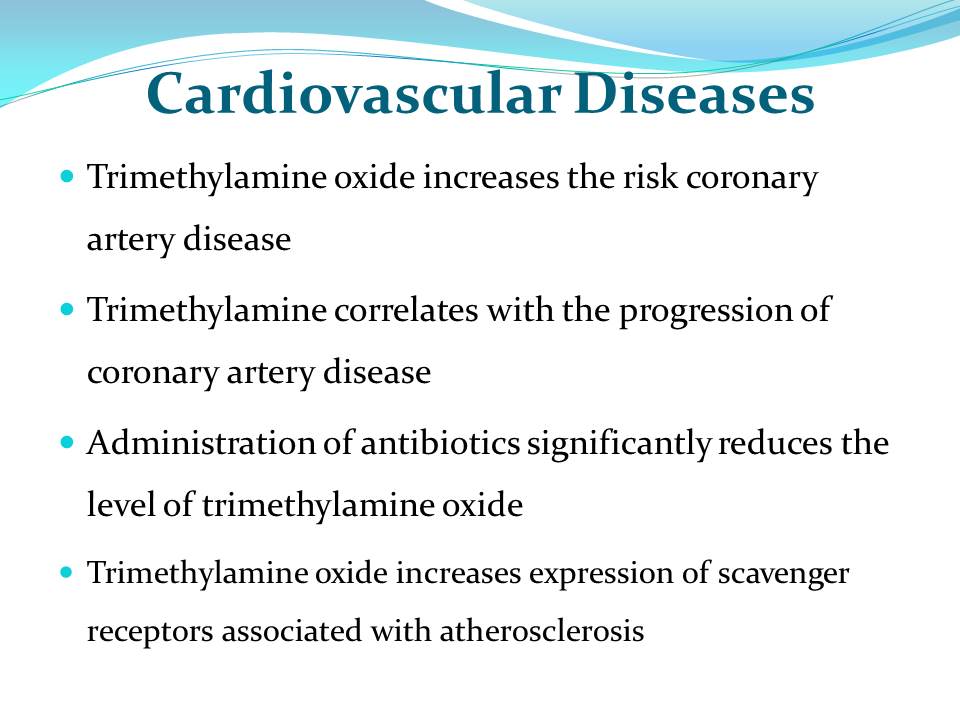
Coronary Artery Disease
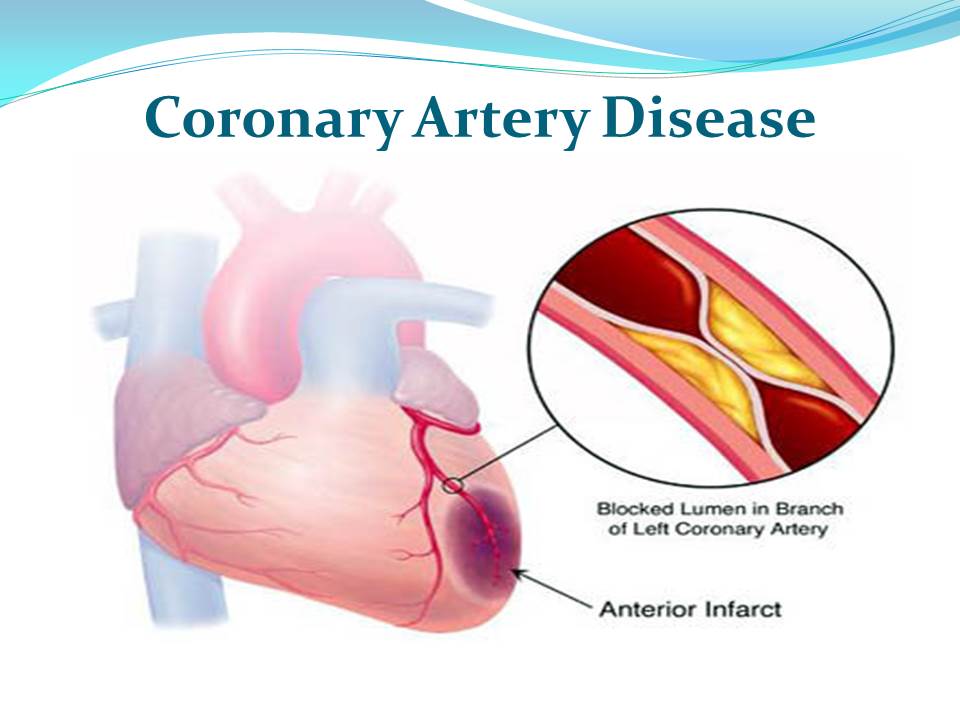
Prediction of Heart Diseases
- The levels of trimethylamine oxide in blood and urine indicate the extent of risk for heart diseases;
- Avoiding food rich in lecithin can help in reduction trimethylamine oxide in blood;
- Use of antibiotics can also reduce the level of trimethylamine oxide in body.
Given that gut flora metabolize lecithin into trimethylamine, which the liver consequently metabolizes into trimethylamine oxide, measuring the levels of these metabolic products in the blood and urine can indicate the extent of heart disease risk in a person. The levels of trimethylamine oxide in the body poses a significant risk of heart diseases because it causes atherosclerosis in blood vessels, which consequently leads to heart attack, stroke, coronary heart disease and other cardiovascular diseases that normally lead to death (Tanga et al., 2013). By examining the levels of trimethylamine oxide in the body, medical doctors, or nutritionists can advise individuals about the nature of the diet or antibiotics that is necessary to reduce the amount of trimethylamine oxide, and decrease the risk of heart diseases. Moreover, since gut flora metabolizes lecithin, control of their population in the gut by use of antibiotics is an effective means of reducing trimethylamine oxide in the body of an individual who feeds on eggs and meat, the animal products that have lecithin.
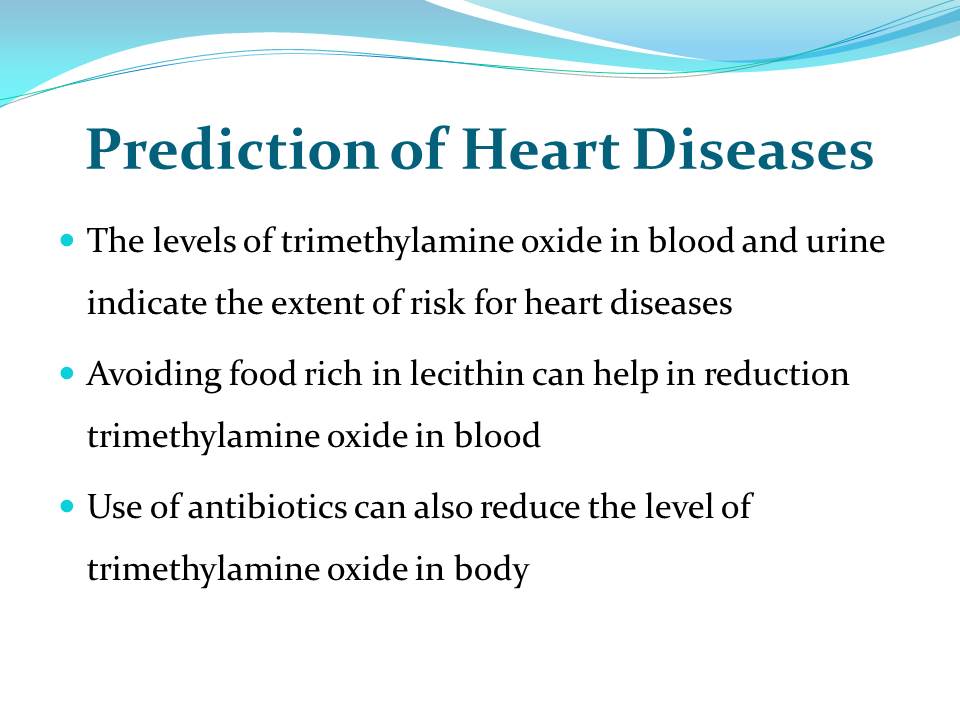
Conclusion
- The nature of nutrition determines predisposition to cardiovascular diseases;
- Dietary lecithin is a phospholipid that is present in eggs and meat;
- Metabolism of lecithin by gut flora and liver monooxygenase results into trimethylamine oxide;
- Trimethylamine oxide causes atherosclerosis;
- Atherosclerosis consequently causes heart attack, stroke, coronary heart disease and other cardiovascular disorders.
Heart diseases are increasing in the population due to the change in lifestyles. The nature of nutrition that people consume is a determining factor of cardiovascular diseases. Cholesterol and triglycerides are conventional causes of cardiovascular diseases; however, new evidence suggests that metabolites of lecithin (phosphatidylcholine) contribute to the occurrence of cardiovascular diseases. Gut flora usually metabolize lecithin into trimethylamine, which the liver enzymes metabolize further into trimethylamine oxide. Trimethylamine oxide causes atherosclerosis in blood vessels. The atherosclerosis consequently causes coronary artery disease, heart attack, stroke, and other cardiovascular diseases by blocking the blood vessels. Poor flow of blood and insufficient supply of oxygen due to blockage of blood vessels pose serious health consequences. Hence, regulation of trimethylamine oxide using diet and antibiotics is imperative in the prevention and management of cardiovascular disorders.
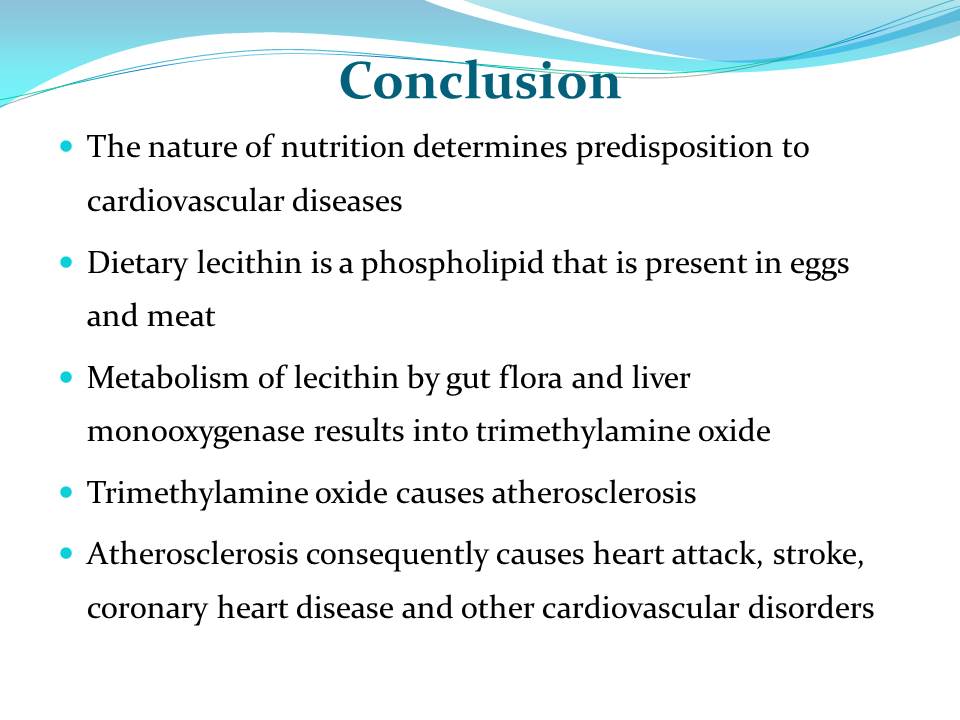
References
Craciun, S., & Balskus, E. (2012). Microbial conversion of choline to trimethylamine requires a glycyl radical enzyme. Proceedings of the National Academy of Sciences, 109(52), 21307-21312.
Loscalzo, J. (2011). Lipid metabolism by gut microbes and atherosclerosis. Circulation Research, 109(2), 127-129.
Szuchaj, B., & Nieuwenhyse, W. (2003). Nutrition and biochemistry of phospholipids. New York: The American Oil Chemists Society.
Tang, et al. (2013). Intestinal microbial metabolism of phosphatidylcholine and cardiovascular risk. The New England Journal of Medicine, 368(17), 1575-1584.
Wang, et al. (2011). Gut flora metabolism of phosphatidylcholine promotes cardiovascular disease. Nature, 472(7341), 57-63.
Zeisel, S., Dacosta, K, Youssef, M., & Hensey, S. (1989). Conversion of dietary choline to trimethylamine and dimethylamine in rats: Dose-response relationships. Journal ofNutrition, 119(4), 800-804.